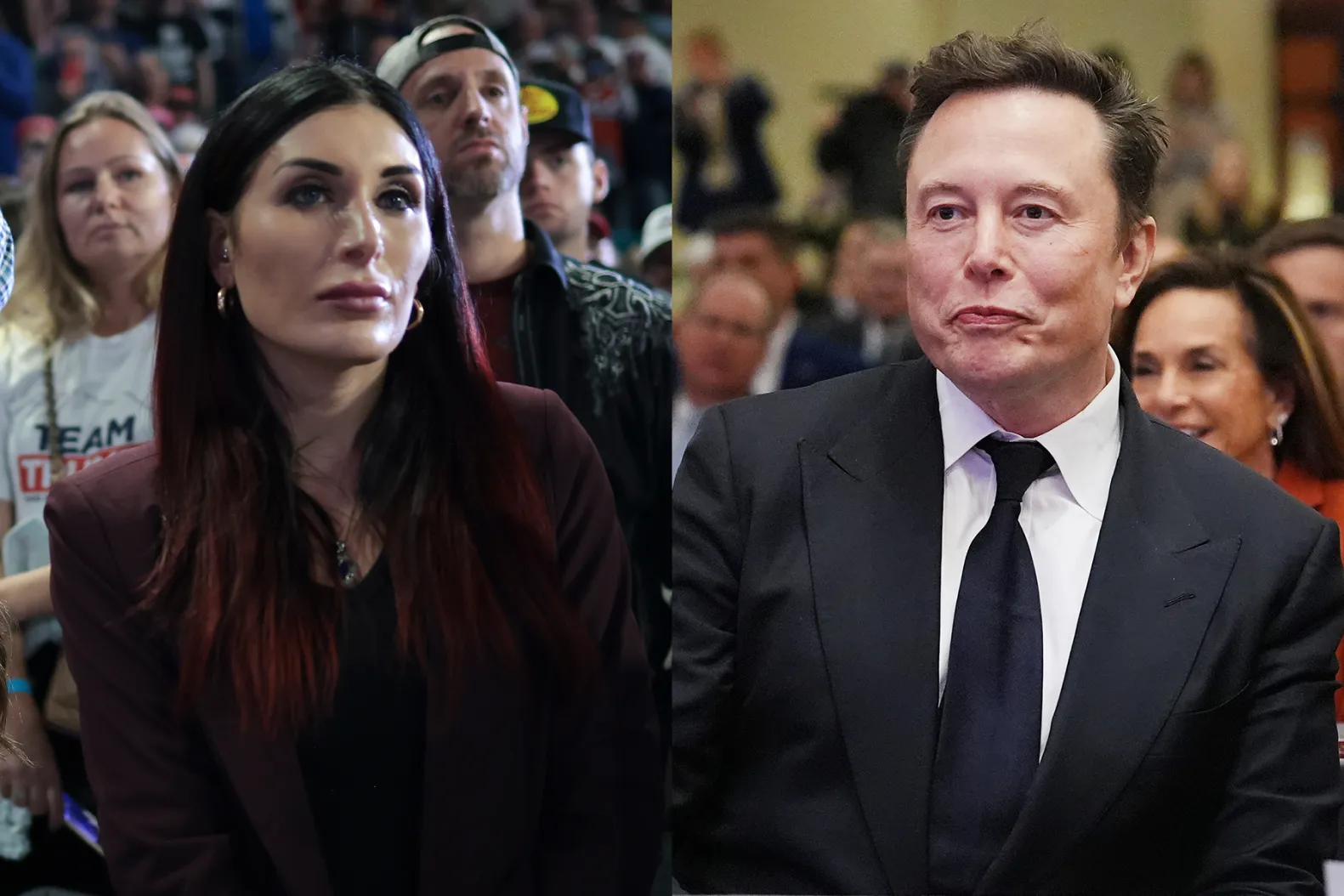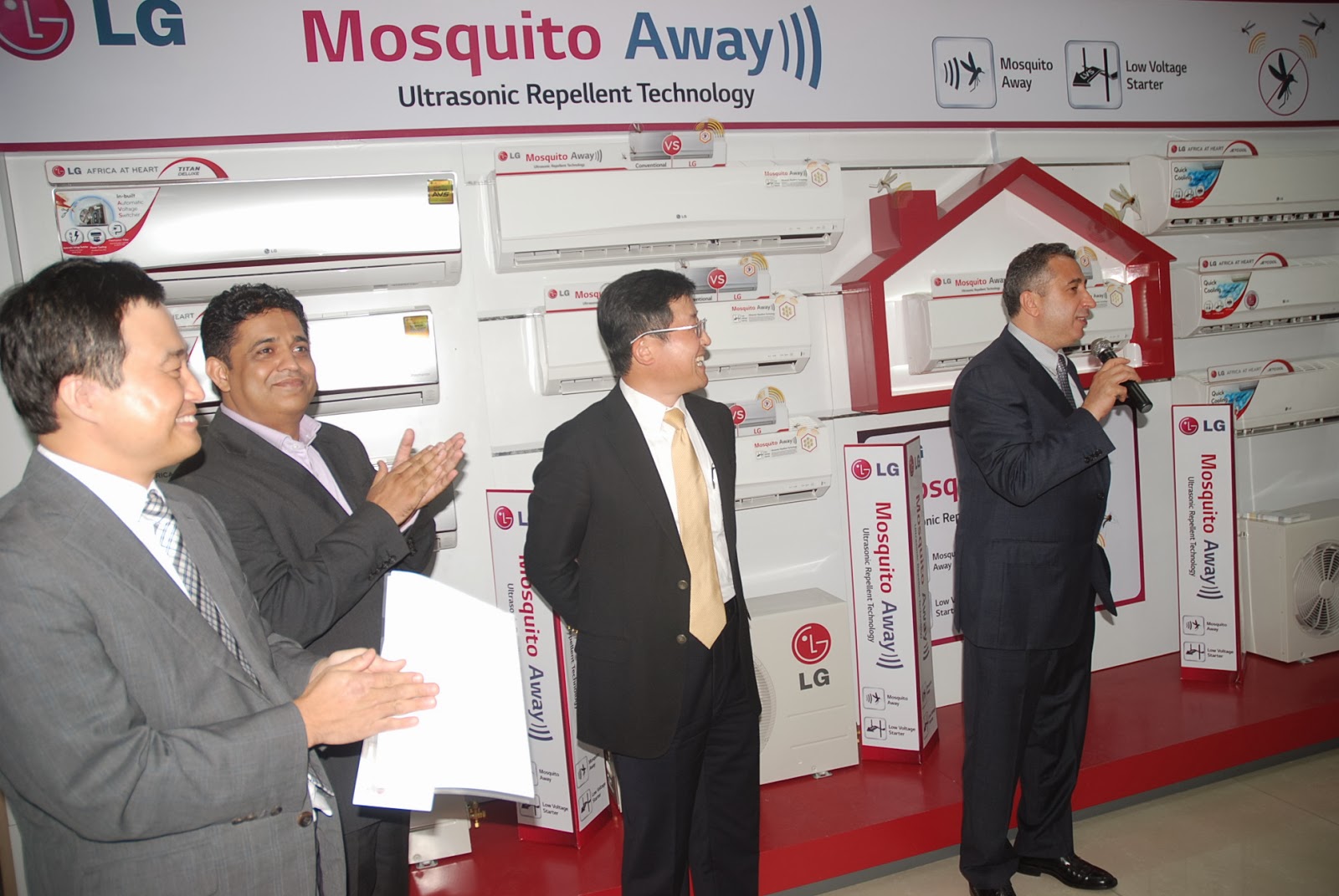A heated debate has erupted on social media, particularly on X (formerly Twitter), involving prominent tech leaders like Elon Musk and David Sacks, alongside far-right activists such as Laura Loomer. The focal point of this contention is the U.S. H-1B visa program, which permits American companies to employ foreign workers in speciality occupations. The issue has reignited long-standing tensions over immigration, innovation, and the balance between America’s global competitiveness and its domestic priorities.
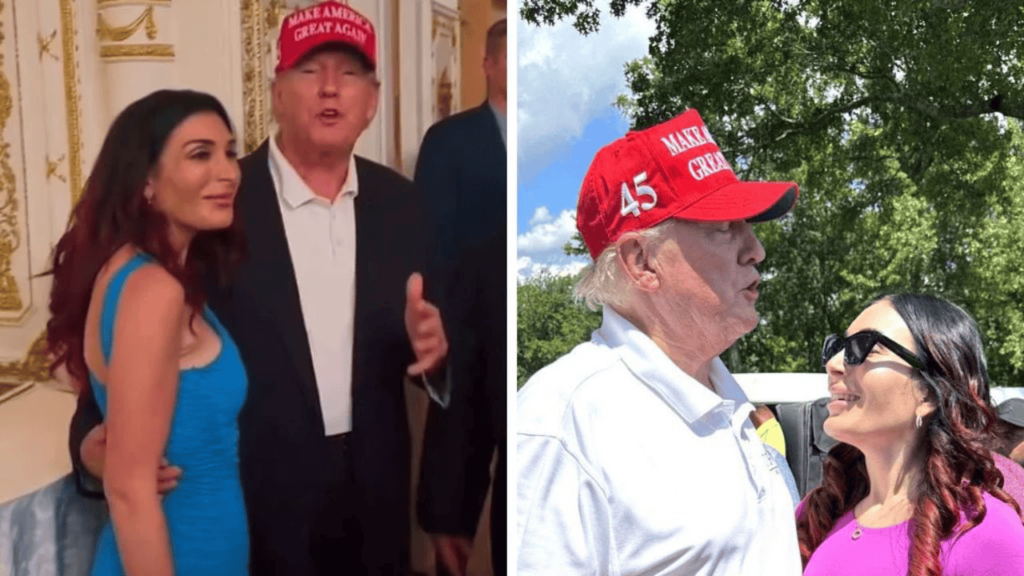
As a Nigerian with family members who are U.S. citizens actively thriving across multiple sectors—from medicine to technology, and even professional basketball—this conversation hits closer to home. Immigrants have enriched America in immeasurable ways, from Andrew Carnegie, a Scottish immigrant who revolutionized steel, to Sergey Brin, a Russian-born co-founder of Google, and Elon Musk, a South African innovator who reshaped multiple industries. Today, the focus may be on Indian immigrants dominating tech, but tomorrow it could shift to Africans, as we continue to excel in tech startups, education, and innovation. America’s strength has always been built on the contributions of immigrants, and understanding how policies like the H-1B visa affect everyone—beyond those currently in the headlines—is crucial to shaping an equitable and prosperous future.
The Genesis of the Debate
The controversy ignited when Sriram Krishnan, an Indian immigrant and U.S. citizen, was appointed an AI adviser to President-elect Donald Trump. This decision drew sharp criticism from far-right figures, who perceived it as contradictory to Trump’s “America First” agenda. Laura Loomer, a far-right activist, became one of the loudest voices of opposition, attacking both the appointment and the broader implications of the H-1B visa program.
Loomer’s opposition to Krishnan’s appointment reflects the deep divide between those who prioritise domestic job security and those who see immigration as essential to the U.S.’s global leadership. For Loomer and her supporters, Krishnan’s appointment was a betrayal of the nationalist principles Trump had championed during his earlier campaigns.
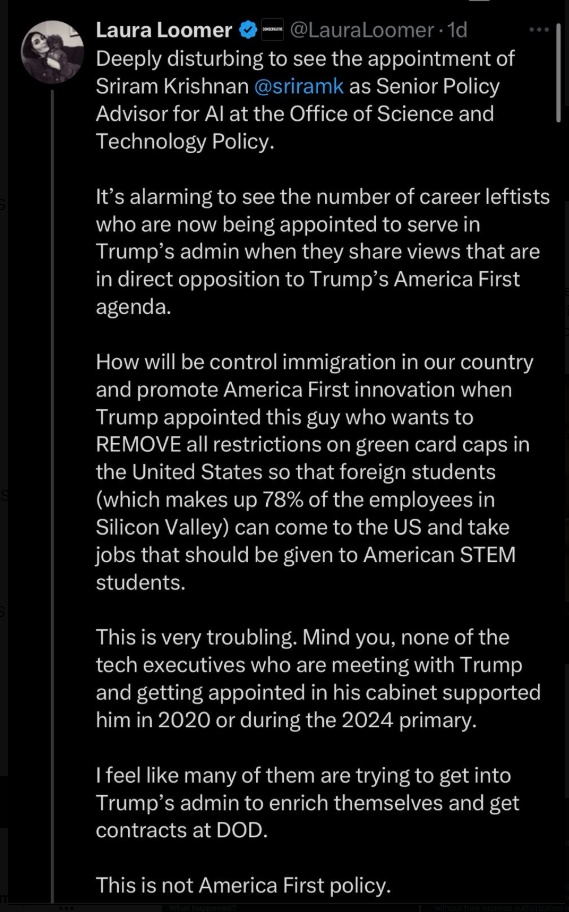
Laura Loomer’s Position and Allegations of Censorship
Loomer took to X to express her discontent, claiming that the influx of foreign tech workers through programs like H-1B undermines opportunities for American citizens. She argued that the program displaces domestic workers, suppresses wages, and prioritizes corporate profit over the well-being of American families.
In a striking turn, Loomer alleged she was temporarily suspended from X after her comments criticizing Krishnan and the H-1B program. She pointed fingers at Elon Musk, the owner of X, accusing him of suppressing her free speech. She wrote, “I was suspended for 12 hours on X by Elon Musk after criticizing highly skilled foreign workers and President-elect Donald Trump’s AI adviser pick.” Her allegations fueled the narrative that tech elites were using their influence to silence dissenting voices in the immigration debate.
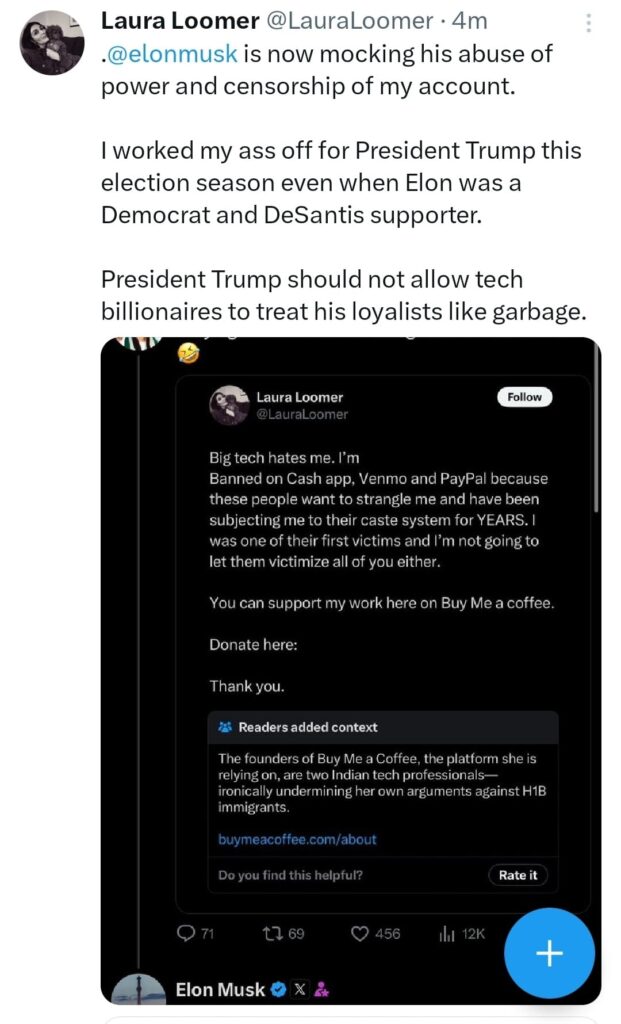
Tech Leaders’ Defense of the H-1B Program
On the other side of the debate, tech magnates such as Elon Musk, Andreessen Horowitz, and David Sacks mounted a vigorous defence of the H-1B visa program. For them, programs like H-1B are vital to maintaining America’s competitive edge in sectors like artificial intelligence, software development, and engineering.
Elon Musk stated, “We should be encouraging talented people to come to the U.S.,” highlighting the necessity of skilled immigration for technological progress. Musk himself, an immigrant from South Africa, has built transformative companies like Tesla and SpaceX, demonstrating the value of immigration in fueling innovation.
David Sacks echoed this sentiment, emphasizing that without foreign talent, the U.S. risks falling behind other countries in the tech race. Sacks described the H-1B program as flawed but indispensable, calling for improvements to ensure it benefits both immigrants and American workers.
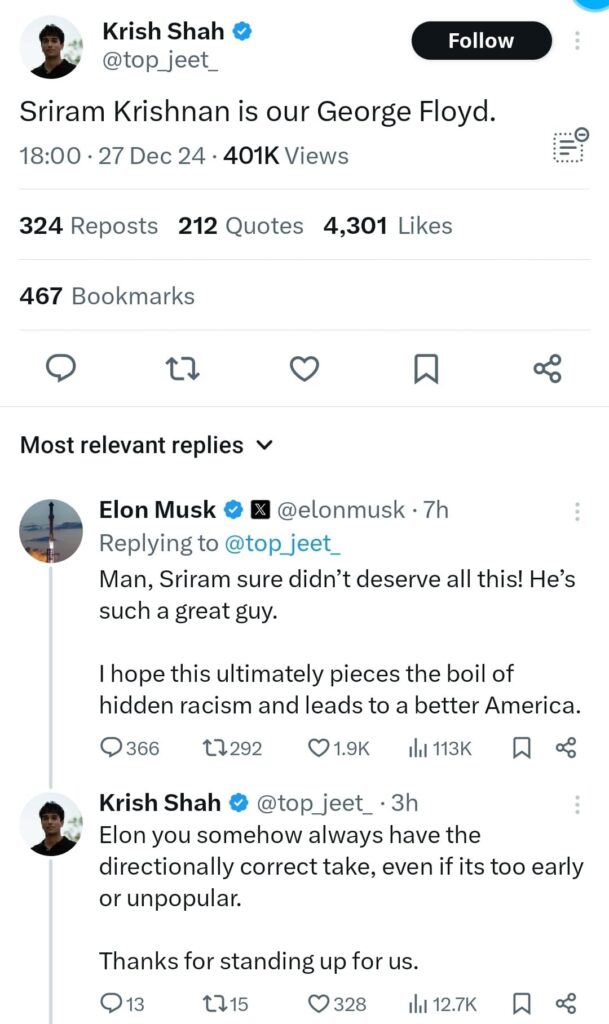
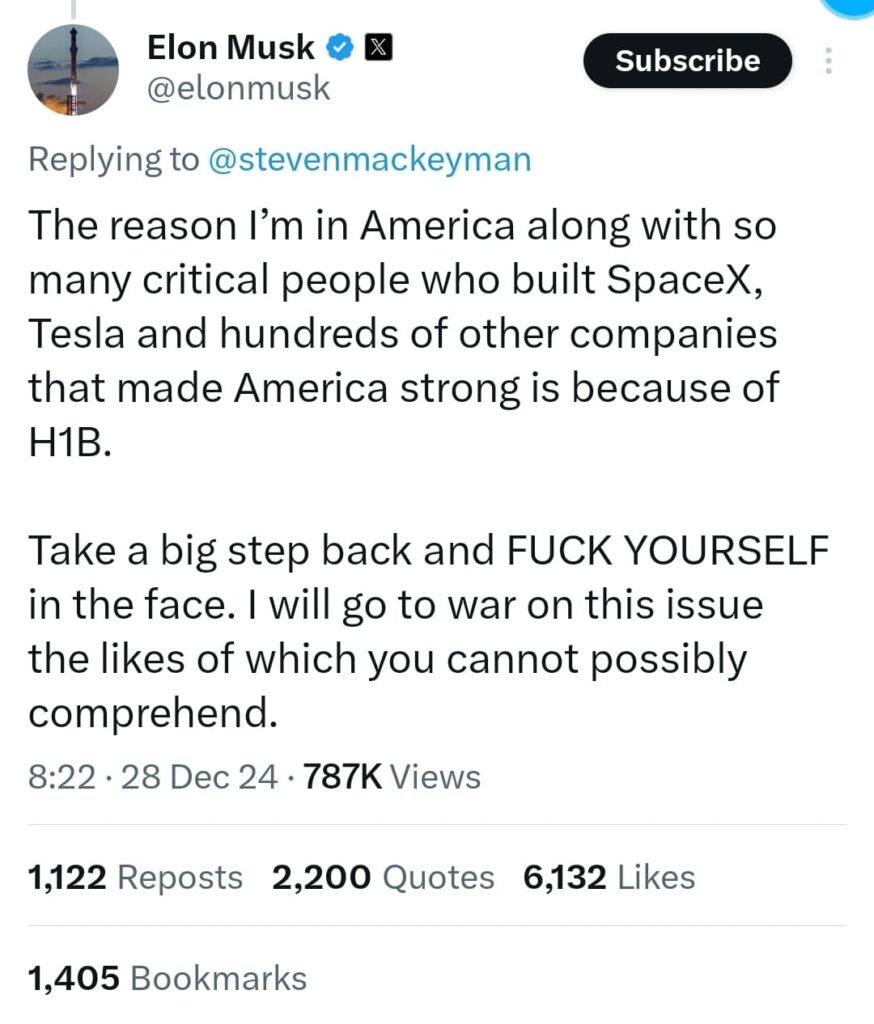
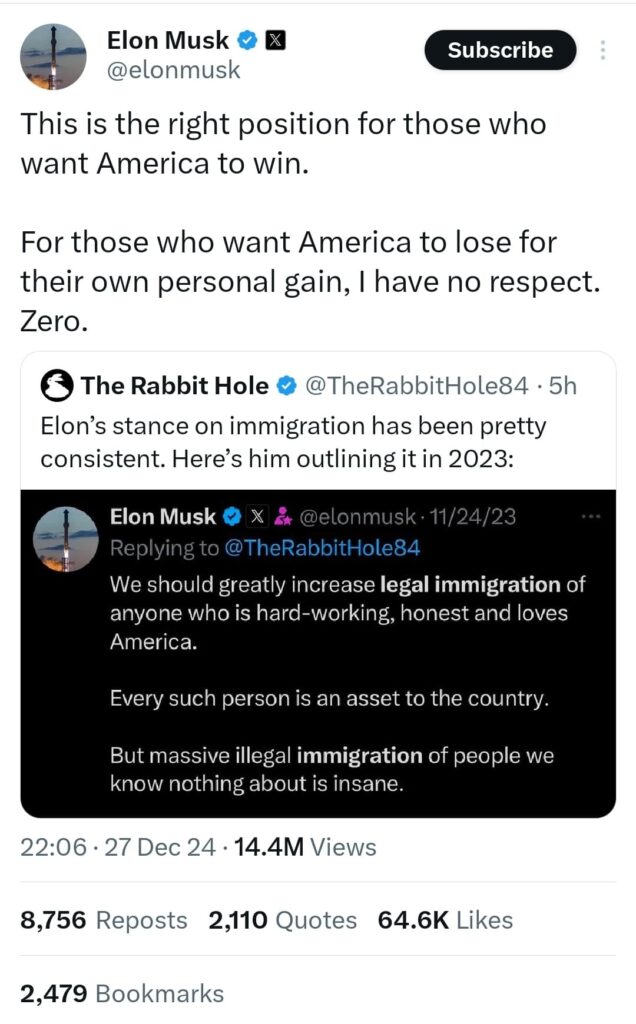
Vivek Ramaswamy’s Perspective
Adding another voice to the conversation, entrepreneur and political figure Vivek Ramaswamy who will be leading the Department of Government Efficiency (DOGE) alongside Elon Musk to cut down government spending went further to critique American culture highlighting the prioritisation of mediocrity over excellence, emphasizing how immigrant families often instil discipline and a focus on STEM education that drives innovation. He argued that fostering a culture that celebrates the valedictorian over the prom queen and prioritizes STEM over social popularity is essential to building a competitive workforce
His criticism wasn’t taken very well by different factions especially as he mentioned certain nostalgic parts of classic American childhoods.
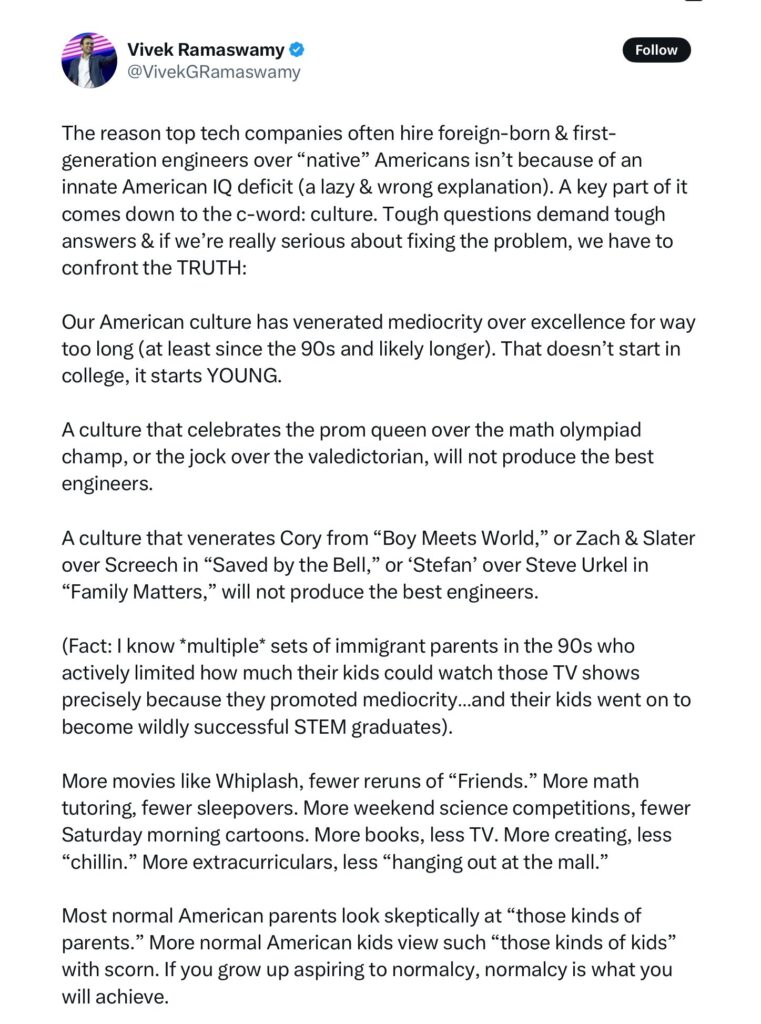
America’s Immigrant Legacy and the Polarising Debate
The H-1B debate is a microcosm of the broader immigration discourse in America, a country built on the contributions of immigrants. Historically, immigrants have driven innovation and economic growth. Elon Musk’s own journey—from immigrant to billionaire innovator—is a testament to the transformative power of immigration.
However, the debate also reveals deep divisions. During the 2024 elections, the MAGA base and its allies, including tech leaders, came together to defeat the Democrats. Immigration reform was a unifying issue. Yet post-election, fractures have appeared. While far-right activists push for stricter immigration controls, tech leaders advocate for expanding legal pathways to bring in global talent.
The rift now raises critical questions: Will Trump align with the business leaders who champion immigrant-driven innovation, or will he stick to the MAGA hardliners who prioritize domestic job protection?
What Is the H-1B Visa Program?
At its core, the H-1B visa program allows U.S. companies to employ foreign workers in specialized fields such as IT, engineering, and science. It is designed to address skill shortages and enhance the U.S. economy by attracting top global talent. However, critics argue that the program can lead to:
- Job Displacement: American workers losing positions to cheaper foreign labour.
- Wage Suppression: Companies using H-1B visas to pay less than market rates.
- Exploitation: Foreign workers facing poor working conditions due to their visa-dependent status.
Despite these criticisms, the program remains an essential tool for U.S. companies seeking to remain competitive in a rapidly evolving global market.
Why This Matters
The H-1B debate has broader implications for the U.S.’s future:
- Global Competitiveness: Skilled immigration fuels innovation in critical industries.
- Economic Growth: Immigrants contribute disproportionately to GDP and startup creation.
- National Security: Retaining top talent strengthens the U.S. position in global tech.
- Cultural Identity: The debate reflects tensions over what it means to be American in a globalized world.
As an African with close ties to America, it’s impossible to ignore the critical role that immigrants have played in shaping the U.S.
The H-1B visa debate is not just about immigration—it’s about America’s identity and its place in the world. As the discourse intensifies, it underscores the challenges of balancing innovation, economic growth, and domestic priorities. With tech leaders, far-right activists, and political figures locked in a battle of ideas, the future of the H-1B program hangs in the balance. The stakes are high, and the world is watching. Will the U.S. embrace its immigrant-driven legacy, or will it close its doors to the talent that has long been its lifeblood?

